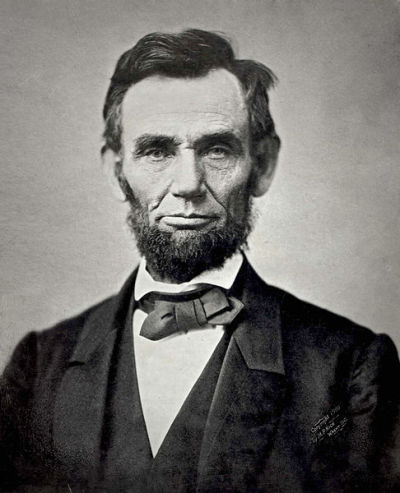President Lincoln put God at the center of Thanksgiving; we should do the same

Halloween is over, the holidays are here – and America is stressed. According to a survey commissioned by the American Psychological Association, 61% of Americans feel stress often or sometimes in the holiday season, citing lack of time, lack of money and family gatherings as sources of their worries and frustrations.
It’s an understandable feeling: The political cycle has been heating up again, our divisions are deepening and we’re finding it harder and harder to connect with one another over meals or face-to-face conversation. But while it’s tempting to think that our plight is unique and unsolvable, history shows us otherwise. All we have to do is look back to the first Thanksgiving.
No, I’m not talking about the first Thanksgiving of 1621 – the peaceful harvest feast shared by Native Americans and pilgrims who sailed on the Mayflower. I’m talking about the first official modern Thanksgiving, celebrated in 1863 at the direction of President Abraham Lincoln. It was Lincoln who named the final Thursday in November as the date of a nationwide celebration, cementing the tradition we carry on to this very day.
We might think this year has been hard for America, but it’s got nothing on 1863. Gettysburg, among the bloodiest battles in U.S. history, had occurred earlier that year, costing the nation nearly 7,000 American lives. Women became widows; children became orphans, and families all across America were torn in two as the war raged on.
So, what did President Lincoln do? In early October, he gave a speech directing all citizens to set aside the final Thursday of November as a day of prayer and rest. Then, he went on to do something even more radical: He thanked God for all the blessings of that year.
America had had an excellent harvest and good weather that year, yielding food for soldiers and civilians alike. Despite the intensity of the war between the Union and the Confederacy, other nations had not interfered, the population had increased and farming and mining had continued to thrive.
These realities, said Lincoln, were “the gracious gifts of the Most High God, who, while dealing with us in anger for our sins, hath nevertheless remembered mercy.” And just as God had remembered to be merciful even amid a cruel Civil War, so too should America remember to be grateful in turn.
It was a reminder the country needed – and one it would need even more the following year. In late October of 1864, President Lincoln again urged the country to look to God and take a day of rest on the final Thursday of November. Again, he reminded the country of its many blessings – including the emancipation of enslaved Americans – and asked them to pray for peace and healing to spread across the land.
Sound familiar? It certainly should. We, too, are facing extreme divisions in our society that alienate families from one another. We, too, are thriving economically in spite of these divisions. And we, too, must look to God as we take a day of rest, reflection and relaxation.
This is not to deny that the challenges facing our country are great, or that our divisions aren’t real. They are – and their outcomes, just like the Civil War, will shape the fate of the nation, for good or for ill. But even amid the fear and frustration we feel, we should never forget to look to God. He is the author of history and the source of our salvation. He is in control, and if we put our trust in Him, He will bring about His will in his good timing.
So, this Thanksgiving, follow the instructions of President Lincoln. Put God at the center of it all – all the blessings and all the hardships. We may find, just as Americans of the 1860s did, that we have a lot more to be grateful for than we realize. And even if we don’t find that – even if we find ourselves coming to God with a broken heart and a troubled spirit – we can put our trust in Him who Lincoln called “the Great Disposer of events,” trusting that He works all things together for the good of those who love Him.





















